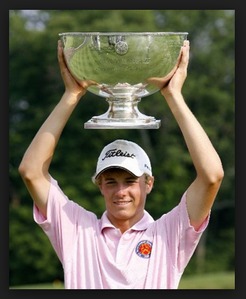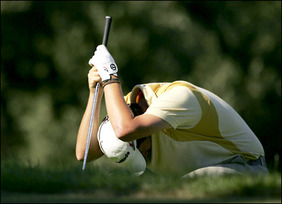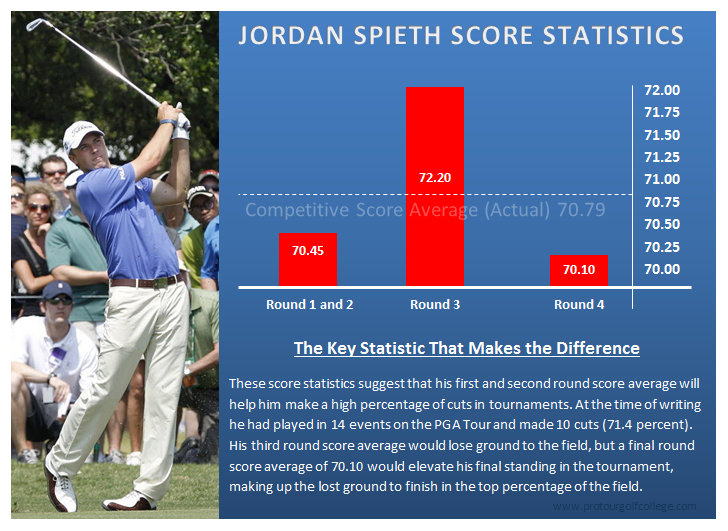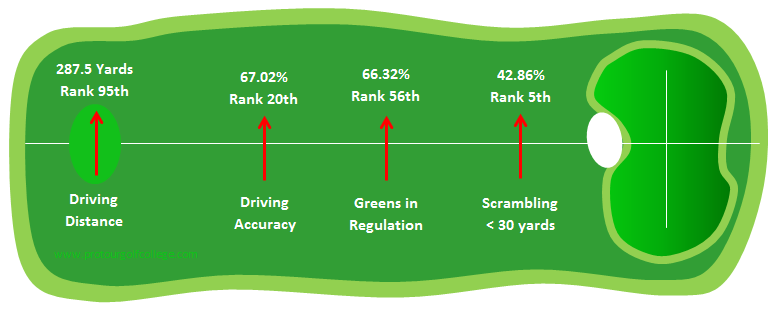 Of recent times there has been quite a bit of discussion about a young man who has been playing some fine and consistent golf on the PGA Tour in his rookie season. So I thought I’d take the opportunity to take a closer look at his game to see what we can learn from his style of play so that it might help you to find strategies to become a more competitive amateur or professional golfer. The one defining characteristic of all successful amateur and professional golfers is their ability to produce golf scores under par more times than not, and especially when it matters e.g. the last two rounds in a four round tournament. Jordan Spieth at the tender age of nineteen (the only golfer other than Tiger Woods to have won the U.S. Junior Amateur multiple times) is one such golfer who appears to be on the right track with this part of his game and is currently playing very consistently on the PGA Tour. This is the key to success in golf; your scoring ability particularly in important tournaments and Jordan Spieth proves once and again that before you make the transition from amateur golf to professional golf you have to develop a low scoring ability first. Video taken by Jordan Spieth's coach Cameron McCormick in 2013  Sadly there are too many struggling professional golfers making up the numbers in the field at tournaments because their competitive score average is too high. If we use the Pareto Principle (80/20 principle) to describe this we find that 20 percent of the golfers in a field after making the cut make about 80 percent of the money available in the tournament and 80 percent of the golfers make about 20 percent of the prize money. Now it’s not exactly 80 percent and 20 percent but I think you get the idea. The idea is to play better in the second half of the tournament to make larger checks, and let me be clear from the outset that if you plan to be a professional golfer you are not doing it because of the love of the game so much as you do it because you want to make a great living from hitting golf shots that result in producing a low competitive score average that translates into income. I can assure you that if your intentions are other than what I have just described, then you’re likely to fail. Professional golf is quite simple to understand, like other professional sports that are score based. Lower score average = higher income and higher score average = lower income A low competitive score average rules in golf! So before we get into some detail about Jordan Spieth's on course performances in pro tour events let’s take a quick look at his performances in college before he took the plunge into pro golf to get an idea of his scoring ability. Jordan Spieth’s 2011-2012 University of Texas statistics show that for 37 rounds over 12 events his competitive score average was 70.92 and he was 0.51 strokes below par (see below). He shot par or better 21 times from 37 rounds or 56.7 percent of the time and 43 percent of his rounds were in the 60’s. Now I know there are many fine golfers playing collegiate tournaments in the US but what I noticed in the results was that Jordan Spieth finished high in the standings in many tournaments which suggests that he plays his best when it matters. This is important, and arguably the most important ability you can develop. Many fine young competitive golfers can shoot low scores in amateur tournaments, but in professional golf tournaments you have to shoot low scores consistently, and especially in the last couple of rounds on the weekend to make the big checks. The mind-set you need to develop is to expect better performances in the last two rounds of every tournament you play in. It is about focusing on the process of producing one golf shot after another without distraction. I know that might be a cliche however that is precisely what you have to do. For many struggling elite golfers we have worked with over the years the attitude quite often is that it is more difficult to play well on the weekend (the last two rounds), and statements like “I've got to make the cut” or “I hope I can play well over the weekend” are not uncommon. The key to strong competitive performances in tournaments is to become a strong weekend golfer by focusing on doing a great job of hitting every golf shot to your plan and being emotionally flexible enough to deal with the fact that the game is full of uncertainties. This is something all top tour golfers can do, and in the last two rounds of a pro tournament (just like the first two) they just get on with the job of hitting golf shots without thoughts of "what if". In Jordan Spieth’s case he is particularly good at this going by his last round score average. Jordan Spieth’s statistics tell us that he has a very solid tee to green game with a ranking of 28 for the ball striking category on the PGA Tour which ranks his tee shot distance and accuracy (rank 13) and his greens in regulation performance (rank 56). Ranking 28 on the PGA Tour is extremely good in the ball striking statistic, especially when you consider the standard of golfers playing there. Jordan averages a fraction under 12 greens per round and ranks in the top 20 for driving accuracy with an average of 67.02 percent, or between 8 and 10 fairways hit per round. He is a medium length hitter from the tee with an average tee shot distance of 287.5 yards which ranks him 95th on the tour at the moment. Like all golfers competing on the PGA Tour, Jordan is exceptionally good around the green, and particularly within 30 yards of the edge of the green. His standout statistic is his greenside scrambling ability (less than 30 yards) where he ranks 5th with an up and down average of 42.86 percent ranking him as one of the very best on the tour.
This suggests that his par saving skills are extremely effective, which means he keeps the big scores (double bogeys and worse) off his score card, that would bump his competitive score average up. A good all-around game at such a young age is rare - especially on a major golf tour, and his ability to put the score on the board when it counts is his real competitive advantage. If he and his coach Cameron McCormick can maintain this simple approach to playing the game (especially through the tough times) he has every chance of being part of the new generation of PGA Tour stars. Only time will tell and we wish them well. Lawrie Montague and David Milne - Pro Tour Golf College Your Success On Tour is Our Business Comments are closed.
|
Archives
June 2019
|
Proudly Supported By
Copyright © 2011 - 2018 Pro Tour Golf College
Website Managed By Golf Performance Media
All Rights Reserved
Website Managed By Golf Performance Media
All Rights Reserved




 RSS Feed
RSS Feed



